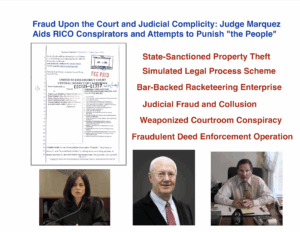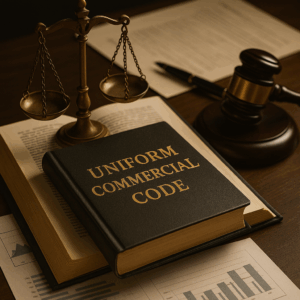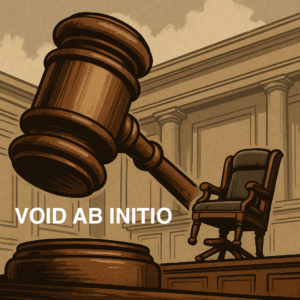
Fraud Upon the Court and Judicial Complicity: Judge Marquez Aids RICO Conspirators and Attempts to Punish “the People”
A federal RICO action filed in the U.S. District Court for the Central District of California unveils a calculated scheme orchestrated by attorneys Barry Lee O’Connor and John Bailey, in concert with MARINAJ PROPERTIES and the Doumit family. The Verified Complaint lays out a detailed pattern of racketeering involving simulated legal proceedings, fraudulent conveyance, and theft of trust assets through a void and defective Trustee’s Deed. Despite perfected title claims and unrebutted affidavits establishing lawful ownership, Judge Rachel A. Marquez has enabled the misconduct by shielding culpable parties and targeting the rightful beneficiaries asserting their rights. The suit cites violations of 18 U.S.C. §§ 1962 (RICO), 241 (conspiracy against rights), and 1341 (mail fraud), along with California Civil Code §§ 1709 (fraud) and 3346 (treble damages for wrongful injury to property). This case exemplifies judicial corruption—where bar-protected insiders act with impunity while private Americans are silenced. The court’s response will reveal whether justice, equity, and due process remain alive in California.



